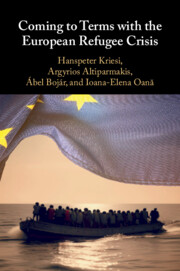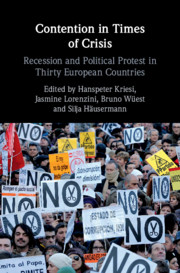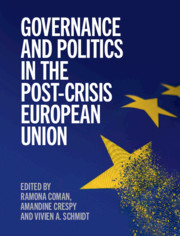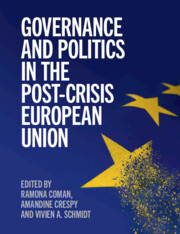Coming to Terms with the European Refugee Crisis
The refugee crisis which hit the European Union and its member states during 2015–16 was just one in a series of recent crises, but perhaps the most critical for the EU's resilience. This book shows how policymakers in the EU polity have tried to come to terms with it. To explain how they reacted to the crisis domestically and jointly at the EU-level, the study relies on an original method to analyze political processes. It argues that the policy-specific institutional context and the specific crisis situation, defined in terms of asymmetrical problem and political pressure, largely shaped the crisis response. The authors suggest that the way in which the refugee crisis was managed has resulted in conflicts between member states, which have been further exacerbated in subsequent crises and will continue to haunt the EU in times to come. This title is also available as Open Access on Cambridge Core.
- Combines European integration studies (the study of the crisis at the EU level) and comparative politics (the study of the crisis in the member states)
- Introduces a new theoretical framework that builds on the polity approach of the SOLID ERC Synergy project, of which this study is a part
- Features an original empirical method for studying policy-making processes: political process analysis (PPA). This approach is used to study episodes at the EU level and in eight member states: Greece, Italy, Hungary, Austria, France, Germany, Sweden and the UK
- Examines the German Chancellor's critical decision to suspend the Dublin convention and admit asylum seekers to Germany as well as why she and her fellow heads of government, together with the EU agencies, proved unable to reform the Common European Asylum System (CEAS)
Reviews & endorsements
‘Easily the most comprehensive empirical study of the politics of the European refugee crisis. This book’s ‘political process analysis’ is exemplary in linking the domestic and EU levels of policymaking and offers a superb template for studying crisis politics. Essential reading to understand one of the EU’s deepest and most intractable crises!’ Frank Schimmelfennig, Professor of European Politics, ETH Zurich, Switzerland
‘An insightful and holistic account of the 2015–16 refugee crisis. The inspiring use of mixed quantitative and qualitative methods offers a unique narrative of key policymaking episodes and their long-term effects for European integration.’ Ariadna Ripoll Servent, Professor for Politics of the European Union, University of Salzburg, Austria
‘Using an innovative method, Kriesi et al. provide one of the most comprehensive and insightful studies of the 2015–16 refugee crisis. A must-read for those interested in EU crisis politics and migration politics alike.’ Natascha Zaun, Professor in Public Policy and Law, Leuphana University Lüneburg, Germany
Product details
January 2024Adobe eBook Reader
9781009456562
0 pages
This ISBN is for an eBook version which is distributed on our behalf by a third party.
Table of Contents
- Part I. The Refugee Crisis in the EU and its Member States: Our Approach in Context:
- 1. Introduction
- 2. Theoretical framework
- 3. Design of the study
- 4. Crisis situation – policy heritage, problem pressure and political pressure
- 5. The variety of policy responses at the EU- and national level
- Part II. Policy-Making: Actors and Conflict Structures:
- 6: Conflict lines in the member states
- 7. Actors and conflicts at the EU level
- 8. Government composition and domestic conflicts
- 9. Framing the refugee crisis on the right
- Part III. The Dynamics of Policy-Making:
- 10. The drivers of elite support in the refugee crisis
- 11. Dynamics of politicization of policy-making between polity levels
- 12. Dynamics of policy-making in the EU-Turkey agreement
- Part IV. Outcomes and Conclusion:
- 13. Policy-specific conflict configurations on the demand side
- 14. The electoral consequences of the refugee crisis
- 15. Conclusion
- References.









